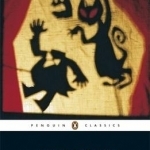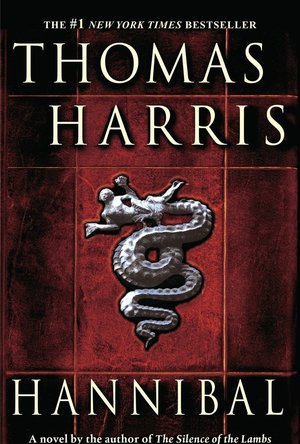
KJV, Know the Word Study Bible, Imitation Leather, Purple/Brown, Indexed, Red Letter Edition: Gain a Greater Understanding of the Bible Book by Book, Verse by Verse, or Topic by Topic
Book
The KJV Know the Word Study Bible offers three easy ways to begin studying Scripture and helps...

KJV, Know the Word Study Bible, Paperback, Red Letter Edition: Gain a Greater Understanding of the Bible Book by Book, Verse by Verse, or Topic by Topic
Book
The KJV Know the Word Study Bible offers three easy ways to begin studying Scripture and helps...

gogoNavi Japanese English Offline Dictionary Lite
Reference and Education
App
語語Navi is a Japanese to English, English to Japanese Dictionary, that features: • FAST,...

myQuran - Holy Quran with tafsir and tajweed rules
Reference and Book
App
myQuran application is your universal assistant, which allows you to benefit from reading and...

Driller's Method Worksheets
Utilities and Education
App
This application uses the worksheets (also named of Kill Sheets) based on standardized worksheets of...
Sass Perilla (36 KP) rated The Master and Margarita in Books
Aug 9, 2019
Firstly, I didn’t intend to write an essay on this novel. However, once started I found I had a lot to say, and the more I thought about the plot and characters, the more ideas and parallels were sparked, so I am hopeful that the verbosity of this review can be forgiven.
At the risk of sounding both ignorant and uncultured, I found this novel (at least at first) bloody hard slog; not least because the Russian characters have three names, plus a nickname, plus a pun on their name (none of which work particularly well in translation and all of which sound rather similar to the English untrained ear). As an example- Ivan Nikolaevich Ponyrev (who seems to be referred to by any and all of these names) is also known as “Homeless” and “the poet” is a key character in the opening section of the novel. To further demonstrate: there are 17 different names that start with A that are used to refer to 15 different characters with Andreyevich used as the middle name of a bereaved uncle, who makes a journey from Kiev after his nephew is beheaded in a freak tram accident- and Andrey the buffet manager at a Moscow theatre. Clear as mud right? And that is before starting on similarly named characters with the initials M, P, L and S! At my last count there were 45 distinct characters, and I am fairly sure there will be some that I have missed. Hence, I did a lot of re-reading to work out exactly who was doing what to whom.
Additionally, I would suggest you need to be wary of the different translations. The distinct changes in meaning are subtle but important. To triangulate I had three versions at my disposal: Hugh Aplin’s translation (available for free on Kindle), the audiobook version translated by Richard Pevear and Larissa Volokhonsky (which I listened to simultaneously when reading the book to come to my own interpretation, and the subtitles for the Russian TV miniseries from 2005 when I gave up trying to work out who was who from name alone!
So those were my “technical” issues (if you like) with engaging with this novel, and this lack of clarity and understanding (and my own lack of contextual knowledge of Stalinist Russia) meant I missed many of the (what I am sure are hysterically funny to those in the know) satirical jokes in the opening section. That said, the random action and quick changes of focus, undercurrent of chaos in Moscow despite entrenched hierarchal structures and clear threat that (any) one could go missing at any time, for an unclear reason gave a clear insight into the mind and fears of a 1930s Russian citizen. No wonder it was available only in censored form for so long.
Despite these hardships, there were some genuinely laugh out loud moments in the first Moscow based part of the novel. The citizens have not lost their individuality, as they scrabble and fight for bank notes in the theatre, which are later revealed to be worthless. Nor have they lost their sense of pride and vanity, which we see in the female theatre goers, so desperate to attain the fashionable French couture (which later literally disappears from their bodies leaving semi-naked citizenesses desperately trying to cover themselves in a scene reminiscent of “Allo Allo” meets “Benny Hill”). When Professor Woland says his show will “expose” what the locals have failed to realise is that it is their (moral) shortcomings that are about to be revealed. The message is clearly, that no government can successfully legislate against human nature.
Oooh- and another fun fact, apparently Woland (later revealed- or perhaps is implied- to be Satan) was the inspiration to the Rolling Stones 1968 hit “Sympathy for the Devil”, well at least that is what my Google-Fu tells me.
Obviously, there were substantial hurdles to leap, however, I found by the second half of the novel, when we finally meet the eponymous characters, I had got in to the swing of things and begun to embrace the farcical surrealism of the novel.
The second “book” marks a change in tone, although it continues to cut away to scenes of Jesus’ sentencing by Pilate and execution (here known in the Aramaic form Yeshua). Ironically it is these scenes that are the most “real” and substantially human, as Pilate’s decision weighs head achingly heavily on him throughout. The Master and Margarita seem to be the only two characters fully invested in the authenticity of literature, and serve as a counterpoint to the heavily censored “monstrous” writing of Ivan and the rest of the writers’ union Massolit, more interested in fine dining and what their positions can do for them then the production of quality writing.
And it is Margarita’s journey of discovery and liberation from the stodgy, miserable societal expectations of that leads her back to her Master. Bulgakov mixes classical myth, Russian folklore and Bible stories to give us an impression of the timelessness of the central romance. As the worlds of communist Moscow and the inner worlds of the Master and Margarita collide, we are informed of the former’s desire to excuse all magic (and mischief) as the product of mass hypnosis, when the latter (and the reader) are fully aware of the spiritual significance and dimension of the events.
Clever, astute and in places laugh out loud funny, this novel none-the-less requires a level of dedication from the non-Russian speaking reader. Worth a read? Yes. Worth a re-read? Maybe not.

English Vietnamese Dictionary - Tu Dien Anh Viet
Reference and Education
App
Top 1 Vietnamese Dictionary on Appstore English Vietnamese English Dictionary is a comprehensive and...

Earthquake by American Red Cross
Weather and Utilities
App
**One of "9 Apps to Fast-Track Your New Year's Resolutions" - Mashable** **“Those who live their...
Hadley (567 KP) rated Hannibal (Hannibal Lecter, #3) in Books
Apr 6, 2019
We get to follow Special Agent Clarice Starling through her troubles in the FBI,Hannibal Lecter's life while on the lamb (yes,that was intentional),one Italian detective's need for retribution,and a family's empire thirsty for revenge all inside of Harris' well-written 'Hannibal.'
The transition between this cast of characters is easily done with quick chapters,but Harris never loses a stride,keeping the momentum going from page to page.
The book begins with Special Agent Starling having made her place in the FBI. This soon becomes a controversy after a shootout pushes Starling into the headline spotlight,dubbed as the: Death Angel. Her career begins to fall apart,but not unnoticed by the one and only,Hannibal Lecter.
We meet a new and unforgettable character named Mason Verger. Verger is one of Lecter's earlier victims (pre-Silence of the Lambs),who survived and offers a high reward for the capture of his attacker. Verger is a memorable character --- "Mason Verger,noseless and lipless,with no soft tissue on his face,was all teeth,like a creature of the deep,deep ocean. Inured as we are to masks,the shock in seeing him is delayed. Shock comes with the recognition that this is a human face with a mind behind it. It churns you with its movement,the articulation of the jaw,the turning of the eye to see you. To see your normal face." But finding out the things he had done during his lifetime stays with the reader.
"I'm not ashamed anymore.I'll tell you about anything. It's all okay now. I got a walk on those trumped-up molestation counts if I did five hundred hours of community service,worked at the dog pound and got therapy from Dr. Lecter."
Even I couldn't blame Lecter for what he did to Mason.
"He went over to the mirror I looked at myself in,and kicked the bottom of it and took out a shard. I was flying. He came over and gave me the piece of glass and looked me in the eyes and suggested I might like to peel off my face with it."
Although most would have a revelation after such an attack,Mason continues to be the person he had always been,especially towards the children in his family's 'day care.'
"Do you know what will happen to Kitty Cat? The policemen will take Kitty Cat to the pound and a doctor there will give her a shot. Did you get a shot at day care? Did the nurse give you a shot? With a shiny needle? They'll give Kitty Cat a shot. She'll be so scared when she sees the needle. They'll stick it in and Kitty Cat will hurt and die."
Another interesting character we meet is named Rinaldo Pazzi,an Inspector in Florence,Italy. Pazzi is well known for working high profile cases,including the infamous serial killer,Il Mostro. It is Pazzi who identifies Lecter hiding in Florence. He makes a deal with Verger to help capture him for a nice lump sum,but at the chance of being killed by Lecter.
Eventually,we get a small insight into Lecter's psychological makeup by reliving the death of his sister,Mischa. This memory plays on and off throughout the rest of the book,but it's the only glimpse the reader gets into the dark side of Lecter's mind palace.
Harris beautifully transitioned from 'Silence of the Lambs' to 'Hannibal,' keeping readers on their toes from chapter to chapter. Interesting and dark characters intertwine to bring an end to Hannibal Lecter's series ('Hannibal Rising' is a prequel detailing Lecter's life as a young man).
I wouldn't say that you HAVE to read 'Silence of the Lambs' to understand the book 'Hannibal.' Harris did a great job of reminiscing over events that happened in 'Silence . . ." Yet,having read 'Silence. . .,' I will say you would get a better picture of Hannibal and Starling's view of one another,which would make the ending of 'Hannibal' make more sense to the reader.
Overall,I enjoyed 'Hannibal' more than 'Silence of the Lambs.' I find Starling's maturity in 'Hannibal' refreshing compared to her insecurities in 'Silence. . .' The book is very fluid,but a heavy read - this is not a read-in-a-day kind of book (484 pages). I found myself stopping and allowing what I read to settle in because it just seemed the right thing to do. My only annoyance was that during the entire part two that takes place in Florence,there is a lot of Italian being used without an english translation (I am not fluent,not even a little,so all of those sentences went right over my head). I feel like I may have missed out on some dialogue because of this.


